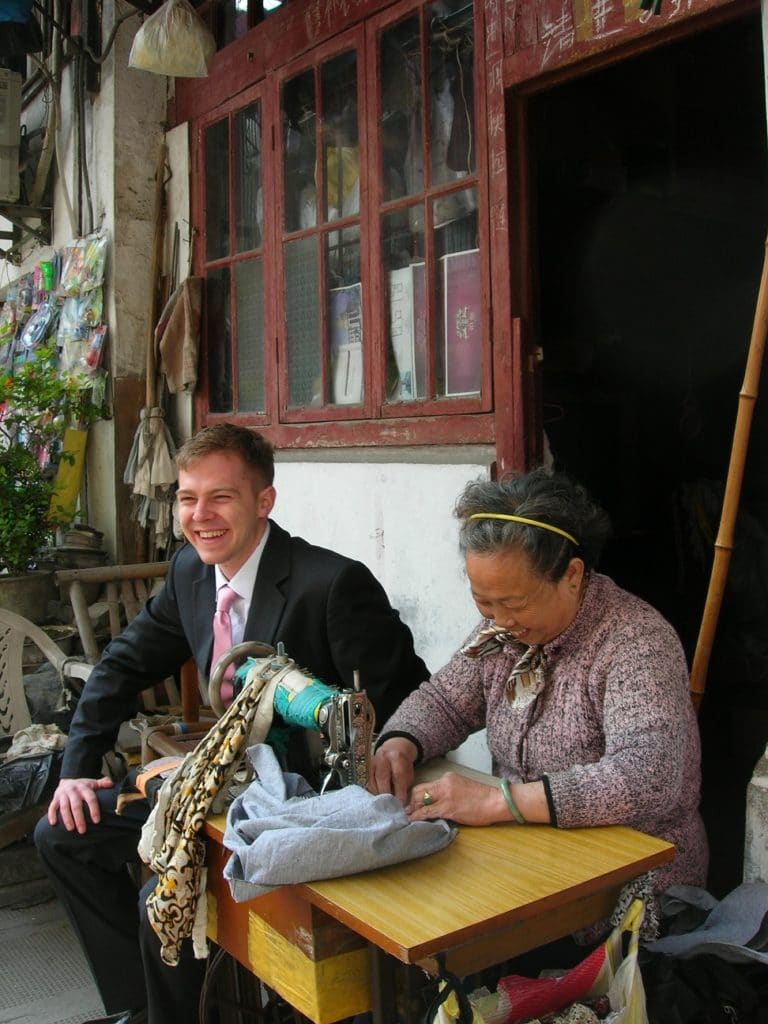Interview with Kyle Vucko from Indochino.com
Kyle Vucko from Indochino was recently kind enough to do an interview detailing some of his exploits doing business in China along with advice for those just starting. For those not familiar, Indochino was started by Kyle and his partner in 2006 and has since totally changed the job of buying a tailor made suit. Customers can simply enter their measurements following Indochino's easy step by step process and they will have a custom tailored suit made for them in China and delivered anywhere in the world within a few weeks. Best of all, the quality of an Indochino suit is on par with those costing several thousand dollars more.
How and when did you get started importing from China?
In 2006, my co-founder and University of Victoria classmate Heikal Gani shared the story of his struggle to find a suit. We saw a missed opportunity in the space – delivering men’s custom apparel cost-effectively – and traveled to China to find a better way of helping guys get dressed.
My first trip was in fall 2006 when I took a semester out from school to look at options. Heikal and I moved to Shanghai in 2007.
When and what was the first product(s) you imported from China? How big was the order?
The first custom suits, dress shirts and pants were shipped in single orders in March 2007 – I was measuring friends and making garments for them. At the time no one was doing mass-customized apparel so we had to build our infrastructure from scratch, doing most of the work ourselves.
What's one of your favourite things about doing business in China?
I enjoyed building relationships with our early suppliers. We didn't use contracts – instead we had an ongoing dialogue where we developed a process together and evolved pricing over time as order volume and relationships developed.
What is one of your least favourite things about doing business in China?
I found that it’s very hard to get a real answer from suppliers – and they always outsourced something!
I remember the first producer we worked with was a sales guy who employed a third party tailor to make our garments. So we went to the tailors directly, but it turned out they only made the jackets and outsourced the pants. After getting them to change that, we found out that they still outsourced some of the hemming and pressing to another facility.
Do you have a funny story or two of ‘culture shock' while doing business in China?
Oddly enough, not really. I actually had reverse culture shock coming back to Canada! I had left university with little experience to set up a company in China and quickly got used to their fluid, relationship-building way of conducting business. Returning to the very regimented, black-and-white North American approach was a real learning curve.
What's one thing you know now about importing from China that you wish you knew when you first started?
Importing from China is a very different story from when I started out. Factories nowadays are used to working with western companies and have the communications, tools and processes in place that simply weren’t available to us seven or eight years ago.
One piece of advice I wish I had been given is to work with a professional factory right from the start, even if it means paying a bit more. They will help bridge any inevitable gaps in your knowledge in terms of quality expectations, build specifications, etc.
Do you have any tips for other entrepreneurs looking to import from China?
My experience has been that specific regions in China tend to specialize in certain products, so you will often find that the vast majority of one type of product is made in a single city. I suggest you try to identify the hub where the kind of product you are developing is made. This will make sourcing factories much easier and generally lead to a high quality producer.




